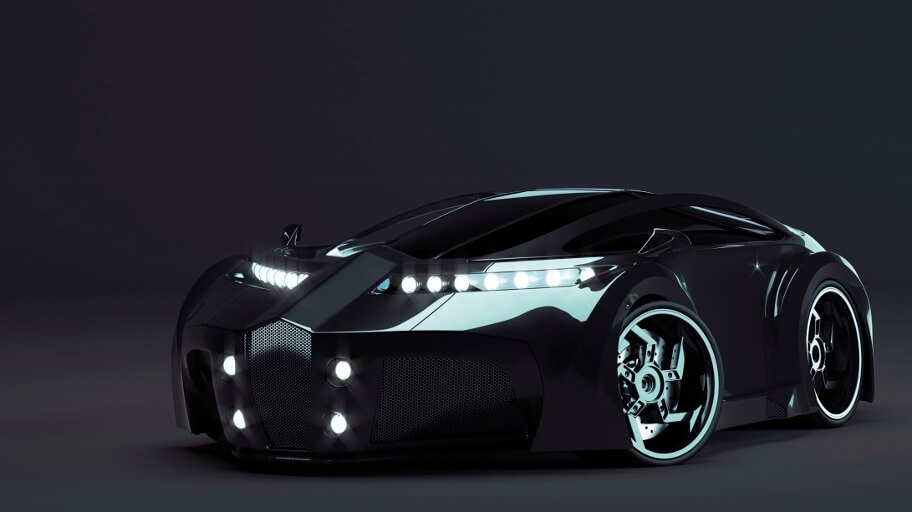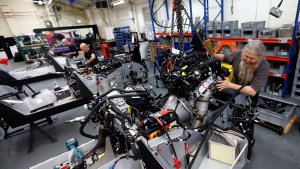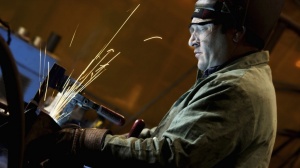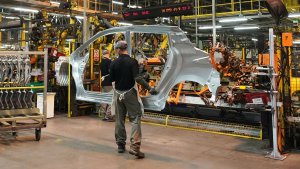Chief creative officer EMEA at Razorfish and SapientNitro
View Author ProfileCar manufacturers have a real chance to differentiate themselves by collaborating with the most dynamic 'blue sky' technology companies. In a connected environment, only genuine innovation will make waves.
Technology
Disrupt Or Be Disrupted? The Question Facing Car Makers
Car manufacturers have a real chance to differentiate themselves by collaborating with the most dynamic 'blue sky' technology companies. In a connected environment, only genuine innovation will make waves.

If car manufacturers don’t summon up the courage to disrupt their own marketplace soon, then there are plenty of new entrants, tech start-ups and entrepreneurs that will do it for them.
The pioneers have already started ripping up the old rule book – Tesla with its auto-piloted electric car and direct-to-consumer route to market; BMW’s DriveNow new approach to car rental based on flexibility and membership; and – of course – Google is inevitably getting in on the action with its Android-controlled car dashboard.
As the agency of record for several large car clients, I agree with the analysts who have warned that the industry is nearing a “tipping point” for disruption and the imminent reality of the “connected car” is sure to push the market over the edge.
You’d think with the havoc we’ve seen wreaked in other industries before – music, publishing, finance and retail, to name but a few – that car companies would be positively embracing change, knowing that they must, as the mantra goes, “innovate or die”.
"Car makers need to team up with more nimble, brave partners to fully commit to disrupting the model"
Yet – even though the well-documented stories of established brands, which practically disappeared overnight, must loom large in their nightmares – something is still holding them back. Reticence is most noticeable in the glaring absence of innovation from big automotive industry names online and in the mobile space. In an always-on, car-connected world, this is not a viable option.
While there are pockets of distant-future innovations, which are promising, there is not the widespread mind-set or culture change which makes disruptive thinking part of the everyday. This is required for success in this rapidly evolving sector. Yes, some stalwarts are dipping their toes in the water.

Google's Larry Page; will companies that create phones and search engines be the car makers of the future?
Like the manufacturer-backed corporate venture capital groups, corporate development offices and research labs in Silicon Valley. Like Audi, BMW and Daimler’s EUR 2.8 billion consortium acquisition of Nokia’s HERE digital mapping and location services: “HERE is developing a location cloud that harnesses the power of data generated by vehicles, devices and infrastructure to deliver real-time, predictive and personalized location services”.
Like Bentley’s new app, which interprets human emotions to create tailored car designs. And like certain Mercedes-Benz models which link to smart home system Nest to remotely control your home’s temperature.
These are all steps in the right direction, but they are not enough. They are not making innovation part of the modern day car marque’s DNA, they are still too piecemeal and periphery. Car makers need to team up with more nimble, brave partners to fully commit to disrupting the model.
In fact, the best outcome of disruption, for all of those in the automotive sector including consumers, comes back to that ubiquitous “C word” again: collaboration. Why? Because only when the different parts of the supply chain are seamlessly joined up in the new automotive ecosystem will the full riches of a truly “connected” consumer car be reaped.
I’m not a lone voice in this argument – various in-depth studies by management consultancies have reached the same conclusion. As Accenture says in its recent study of the market: “manufacturers will struggle if they choose to ‘go it alone’” and need to forge partnerships with all sorts of collaborators from tech companies to entrepreneurs.
The study estimates that the potential of this market is significant if optimised in this truly collaborative way: it forecasts that the total business value of connected car services will reach €100 billion by 2020, and €500 billion by 2025. Or, to put it another way, it predicts that a “fully-fledged connected car”, used heavily, could generate over €5,000 in additional lifetime value.
To make these predictions a reality, car manufacturers must recognise that social and economic influences are irrevocably changing consumer relationships with our cars. Not only have we got much more choice about how we get from A to B (Uber taxi, anyone?), but the advent of the connected car means that an automotive brand’s interaction with a customer can, for the first time, go far beyond the forecourt.
In marketing days of old, the big challenge used to be finding a credible reason to maintain contact with customers between infrequent major purchases. Brand magazines, glossy brochures and a timely piece of direct mail were all the rage in the last century.
That will not cut it for the always-on 21st century consumer. To remain front of mind, even if your prospect isn’t going to purchase a car for another few years (or ever, because they prefer to rent or share), car manufacturers need increasingly be the source of constant, useful content.
The good news? In a world of cluttered, bland corporate communications, connected cars offer car brands a unique way to talk to consumers in a hyper-relevant way, which genuinely improves their lives. Think real-time parking information which lets you find a spot in a packed shopping centre.
Think cars that can check us into hotels, tell friends we’re running late, confirm appointments, make restaurant bookings, order film tickets, pay for petrol and so on.
If car-makers get it right, this technology could revolutionise their relationships with consumers and make cars as treasured a personal space as the mobile phone currently is.
When you consider this potential, it’s almost laughable to think that it was only relatively recently that car maker ads were wall to wall with wind-in-hair windy-road creatives, which tried (in vain) to convince consumers that their brands were a valuable, essential part of their everyday lives.
Fast forward to 2016 and they actually are. Consumers will expect car brands to fit flawlessly into their life with a level of relevance and personalisation that car marketers in the nineties couldn’t even dream of.
It’s crucial to remember that, as driving becomes more automised, the human touch and trust will become more important than ever. The kind of connection you make with a customer, for example, when you’ve just helped saved their life by telling them another car is coming up fast on their inside is a deep, emotionally-charged, powerful one.
So, is the connection forged when your car is able to identify that you’re on a long journey and you may not want to listen to Frozen on repeat for 10 hours, so suggests some other Spotify playlists, based on your past favourites, mood, driving style, location or time of day to break the monotony.
Connected cars are an opportunity for car marques to enter the highly personal world of its customers and ditch the old way of business. In this privileged position they can revoultionise the driving experience and mobility could once again be transformed as much as it was with the introduction of the Ford Model T.
Most read in News
Trending articles on News
Top articles on Minutehack
Thanks for signing up to Minutehack alerts.
Brilliant editorials heading your way soon.
Okay, Thanks!



